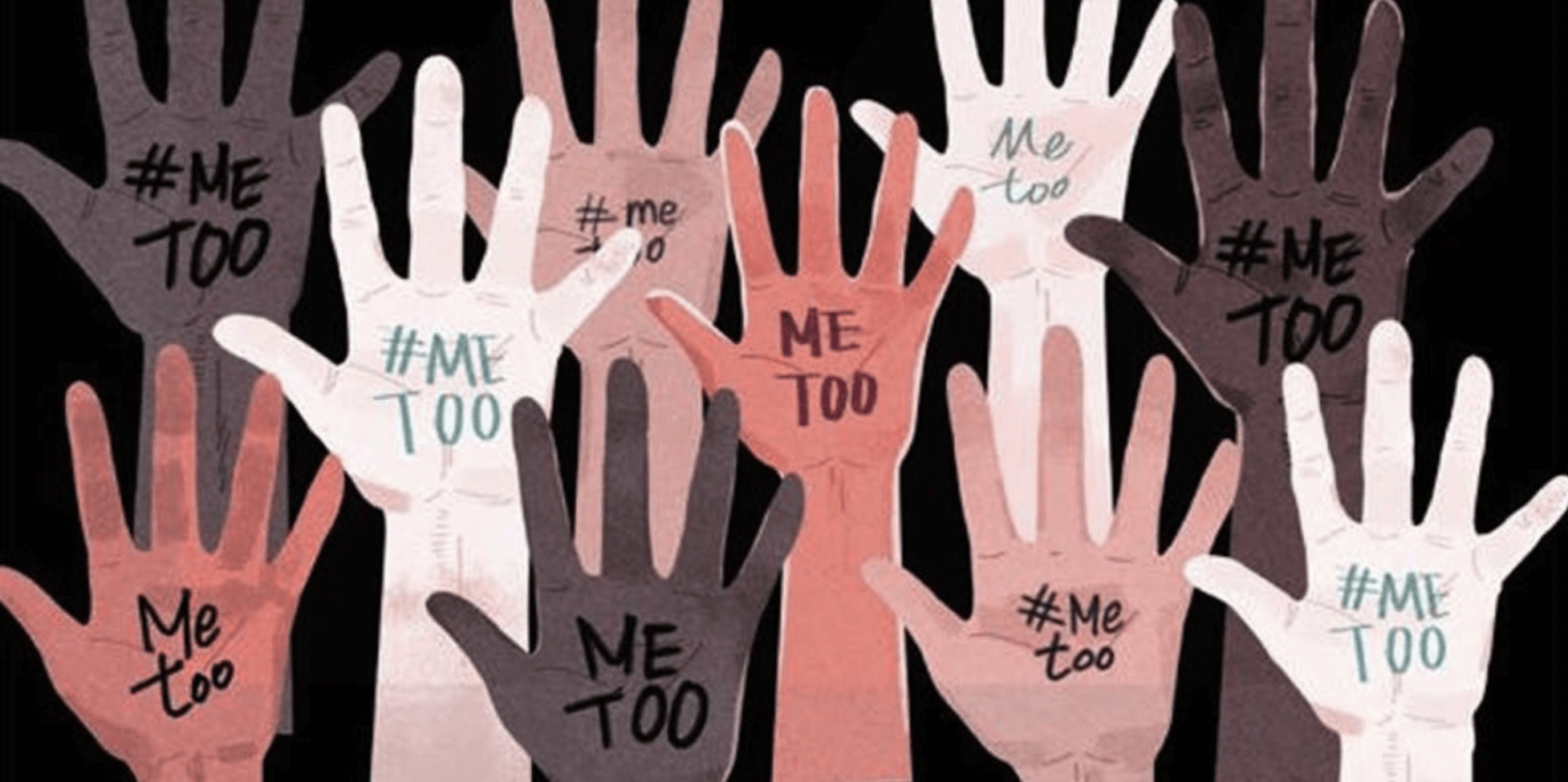Title IX’s Protections Against Sexual Harassment. A Comprehensive Webinar by the National Women’s Law Center Explains How Students Can Leverage Them Right Now
Picture this: you’re in the same class as a student or an educator who sexually harassed or assaulted you. If your school doesn’t intervene to help you feel safe, you might start acting out or skipping class, and eventually, you might quit coming to class altogether. In other words, you can’t exercise your right to equal access to education.
That’s the scenario Attorney Alexandra Brodsky used in a recent webinar to defend the now 50-year-old law federal civil rights law Title IX, which prohibits all forms of discrimination on the basis of sex in any program receiving funding from the U.S. Department of Education.
The June 21 event, The Long Con: Setting the Record Straight on Title IX, was hosted by UnidosUS’ partner organization the National Women’s Law Center (NWLC), and it zeroed in on the challenges of reporting and seeking justice for sexual harassment and assault in educational settings, even though schools are required to respond to these cases. The webinar was the last of a series commemorating Title IX’s 50th anniversary, and it took place three days before President Joe Biden’s administration published its proposed updates to that law in the Federal Register, giving the general public 60 days to provide comment. This federal update also coincided with the day the U.S. Supreme Court officially overturned Roe v. Wade, the 1973 case that ruled the U.S. Constitution generally protects women’s rights to end a pregnancy through abortion.
NWLC was prepared for all these historic discussions, especially since the Supreme Court’s decision had been leaked to the press two months prior. As such, they presented a lively discussion that moved from the basic questions of reporting discrimination to the most excruciating topics surrounding the long-term impacts a victim could face.
“While Title IX is just 37 words long, Title IX broadly protects against discrimination in education, in academics, housing, athletics, employment, and more. It also requires schools to respond to sexual harassment,” noted Shiwali Patel, NWLC Director of Justice for Student Survivors & Senior Counsel. “Why is addressing sexual harassment an important part of realizing Title IX’s vision?” she asked Brodsky.
As with other panelists on the NWLC Title IX webinar series, Brodsky centered the conversation on those most likely to suffer harassment and injustice due to historical and intersectional biases and inequities.
“We know that women, girls, gender, and sexual minorities are more likely to be harassed,” said Brodsky, who litigates high-impact sex and race discrimination cases against students and who authored the book Sexual Justice: Supporting Victims, Ensuring Due Process, and Resisting the Conservative Backlash.
Brodsky co-founded the national youth advocacy organization Know Your IX in 2013, three years after she graduated from Yale University. Hers was a generation that hardly knew of Title IX other than how it prohibited sex discrimination in school sports, and they were just beginning to recognize the rise of rape culture, something that is especially prevalent among student populations. Today, she says social media in the #MeToo era has helped to propel greater awareness of Title IX, but it has been followed by a strong male backlash pushing claims of reverse discrimination.
Brodsky and the other panelists say that while more victims are reporting sex discrimination, they struggle to move forward with their cases because of several factors, including defamation and other forms of retaliation; lengthy, onerous, and re-traumatizing investigations; and the cost of seeking legal assistance. They also say educational institutions fail to fully defend Title IX because they fear lawsuits by wealthy defendants, losing funding from powerful philanthropists, or the difficulty they face in investigating the increased number of reports.
How Title IX Probes Differ from Police Investigations
An NWLC fact sheet covering misinformation about Title IX explains that Title IX imposes separate obligations on schools to treat sexual harassment as a civil rights matter because of the very real impact that it has on a student’s access to education. Unfortunately, Patel says, many opponents of strong Title IX protections argue that sexual violence should only be handled as a criminal matter, which would deter victims from historically marginalized communities (who are often targeted by law enforcement) from coming forward to get help and would relieve schools of obligations to support survivors.
“Arguments that sexual violence should be treated as a criminal manner have also been misleadingly used to justify weakening protections for survivors in the name of stronger ‘due process’ protections for respondents,” she explained.
How Title IX Changed During the Trump Administration
Panelist Thalia Charles, a Know Your IX policy analyst, said changes made to Title IX during the administration of Donald Trump “eroded the rights of survivors in numerous ways,” including narrowing the definition of sexual harassment, mandating that any sexual misconduct that doesn’t occur on school grounds is not covered, and also mandating live cross-examination during Title IX procedures at universities, something that is also allowed to happen at the K-12 level.
She also noted that the Trump-era updates allowed religiously affiliated institutions to claim religious exemptions to the Title IX rules even after they’ve been charged with discrimination, giving them more power to discriminate against victims identifying as LGBTQ+. In an effort to learn about the impact of those changes, Know Your IX conducted a study titled The Cost of Reporting: Perpetrator Retaliation, Institutional Betrayal, and Student Pushout. Many of those interviewed said that after reporting their case and pursuing justice, they experienced retaliation in the form of violence, defamation suits and threats, and slow, onerous investigations.
These scenarios, she said, appear to have worsened due to a backlash from the #MeToo movement and because of the pandemic, which has elevated the risk of sex discrimination because school shutdowns and limited operations made it harder to report. Plus, Charles said, while schools could have conducted investigations using virtual and remote options, many opted to delay the investigations through that time.
She also noted that 15% of survivors interviewed for Know Your IX’s The Cost of Reporting research were threatened with or faced punishment for coming forward. This included being blamed as the perpetrator of the crime for which they reported themselves as a victim. The report also showed that 63% of victims took a leave of absence, transferred schools, or dropped out.
Patel noted that students are increasingly expressing outrage.
“It seems every other week I’m hearing about protests occurring at schools, and not just on college campuses, but I’ve read about middle school students and high school students who have also been fed up with their school’s responses to sexual violence and are demanding that their schools do more,” she said.
Charles concurred with Brodsky that a decade ago most students were not aware of how Title IX protected them against sexual harassment, and that this consciousness-raising has run into some alarming roadblocks.

How the Backlash to the #MeToo Movement Impacts Title IX Assault Cases
“In direct response to the activism of survivor advocates like Alexandra (Brodsky) in the early 2010s and the #MeToo movement, respondents and male rights activists have invented this myth of anti-male bias and Title IX proceedings at the college level,” Charles said, noting that Title IX experts are concerned that courts investigating due process of Title IX cases have recently flipped the intention of the law, using it instead to promote impunity.
Charles cited the 2019 case Doe vs. Purdue in which the U.S. Court of Appeals for the Seventh Circuit sided with a student found responsible for sexually assaulting his ex-girlfriend, claiming that it was “plausible” that Purdue University staffers investigating the case believed the accuser because she was a woman and the accused is a man.
As noted in an NWLC blog Patel co-authored about the case, it “makes it easier for named harassers and rapists to sue their schools and harder for schools to hold students accountable for sexual misconduct.”
Purdue’s investigation revealed a text message in which Doe appears to admit to and apologize to his ex-girlfriend, saying, “I literally can’t trust you if you don’t respect my boundaries,” and he replied “[w]e already went over this several times. I can[‘]t even apologize any[]more because you get angry at me for it. . . . I[’]m sorry. I can[’]t change what I did, as much as [I] want to. I violated you and never should have.”
Amy Coney Barrett, then a recently appointed member of the Seventh Circuit Court of Appeals, presided over that case. The next year, following the death in 2020 of Supreme Court Justice Ruth Bader Ginsburg (a fervent defender of women’s and LGBTQ+ rights, including the right to abortion), President Trump nominated Barrett to fill Ginsburg’s seat, which she holds today.
Charles said, “I do think at the baseline, a lot of the concerns of students from 10 years ago and today are the same. We don’t want to be retraumatized when they report sexual misconduct. We want robust access to supportive measures and academic measures and academic accommodations, we want to be treated fairly by our schools, and we want prompt investigations.”
Kenneth Jacoby, an investigative reporter for USA Today who has uncovered numerous failures of schools in litigating these cases, reiterated other panelists’ concerns.
“Rather than acting in the best interest of the survivor, or the safety of the campus, they act in ways that take the path of least resistance,” he said, noting that dragging an investigation out for months or years may lead the survivor to drop out of the process or end when one or both parties graduate. “The school doesn’t have to make a finding that way.”
When schools do find a defendant at fault, they often issue an “almost meaningless” punishment, Jacoby said, such as putting someone found guilty of rape on probation. He said this is a common practice for evading lawsuits, and that the prospects of successfully litigating a victim’s case are even slimmer when the defendant has a high-ranking lawyer or happens to wield power and prestige, such as an influential educator or administrator or a popular athlete.
But he said that exposing these problems has led to some tangible reforms and improvements at these schools.
“We’ve seen new policies adopted and new laws passed. We’ve seen officials lose their jobs when they’ve mishandled these cases, and we’ve seen survivors sue and reclaim some justice,” Jacoby added.
Jacoby says that USA Today has collected extensive data on the punishment of those found guilty of harassment and assault and that at most schools, just a handful of these perpetrators—perhaps three to four each year—are suspended or expelled.
“When you compare that to the number of reports these schools are receiving and the number of people on those campuses who self-report that they’ve been sexually assaulted, it’s a really minuscule number,” he said.
Brodsky said the growing male backlash isn’t about “good faith questions regarding what fair student discipline should look like,” explaining that the influence of the so-called “fringe” alt-right discourse has been seeping further into mainstream society and systems, instead. In fact, she referenced an investigative report by The Nation titled “How Men’s Rights Groups Rewrite Regulations on Campus Rape.” The report shows how members of several of these groups, including one that uploaded photos and personal data of women it deemed “false rape accusers,” were invited to speak with then U.S. Department of Education Secretary Betsey DeVos ahead of the changes she made to Title IX in 2020.
Patel said that the report “really signaled what narrative the Department of Education at that time was following when they changed [the] Title IX rule,” and she reminded viewers that those changes will remain in effect for months until the Biden administration makes its final updates.

Harnessing and Enhancing Title IX
Toward the end of the webinar, Patel asked panelists to consider how the current 60-day review of the Biden administration’s proposed Title IX changes offers a chance to highlight and address these concerns.
Brodsky and Charles agreed that the original Title IX rule that was in place for years was solid, but as more students come forward to report their cases, the Biden administration should beef up retaliation protections and explain what constitutes retaliation. They also pointed out that schools can review disciplinary actions taken against survivors and increase survivors’ access to trauma-informed advocates. At the federal level, Charles recommended that the U.S. Department of Education issue an amnesty policy that protects student survivors if they were attacked while using substances or while engaged in sexual activity that violates the school’s conduct code.
Jacoby noted that since most school-related harassment takes place off-campus, better data collection could help schools handle Title IX cases.
“There are schools that don’t publish any sort of data or annual reports. They won’t even answer questions about how many investigations have you conducted,” Jacoby said, noting that K-12 institutions do a far better job of collecting robust data on suspensions and expulsions and breaking it down by race and gender.
Is the Department of Education’s Proposed Title IX Update Enough?
The proposed rules published last week in the Federal Register prohibit all forms of sex discrimination and extend coverage to some of the following:
- Harassment leading to a hostile environment that is “sufficiently severe or pervasive.”
- Sex-based harassment or assault that takes place “off-campus” or outside of the U.S. that affects a U.S. institution’s program or activity.
- Expands notification requirements for school and institution employees.
During its webinar series, NWLC has repeatedly encouraged viewers to check their website for updates on the proposed rule changes and information on how to submit comments. Despite this, its staff and the webinar’s panelists all agree Title IX changes aren’t the only updates needed to protect against sex discrimination and ensure equal access to education.
“We also need to see Congressional action to change the standards that are used in assessing Title IX lawsuits in court,” said Brodsky, explaining the various ways Title IX can be broadly enforced. Currently, they are as follows:
- The Department of Education receives complaints, investigates them, and then tries to bring schools into compliance with the law through its own administrative enforcement.
- Individuals can use Title IX to bring private lawsuits against their schools.
“When enforcement was strong and aggressive, schools were really motivated to do a better job of addressing these issues and it did change the way they thought about them and handled these situations,” Jacoby added. “Schools regressed when the Trump administration signaled they weren’t a priority.
As the webinar drew to a close, Patel raised another hot-button political topic—access to abortion. Roe v. Wade was not officially overturned until a few days after this webinar ran, but NWLC knew that decision was coming as it had been leaked to the press several months earlier.
She explained that “a lot of people don’t know that Title IX addresses abortion,” as well as pregnancy, childbirth, and other related medical conditions. This means that schools cannot remove someone from an educational program or activity just because they sought, obtained, or are recovering from an abortion.
Charles followed by saying that abortion bans stand in the way of bodily autonomy.
“That’s going to compound and increase the trauma and the inequities that survivors of gender violence experience,” she said, noting that in the current climate, the legal system isn’t likely to be hospitable to rape exceptions. She added that when compounded, all the injustices discussed during the webinar lead to deep gender inequities in education.
“They violate survivors’ rights to education and their right to bodily autonomy,” Charles said.
Here is a list of resources related to Title IX’s sexual harassment component:
- Federal Register Notice of Proposed Rulemaking Title IX of the Education Amendments of 1972 Notice of Language Assistance
- FACT SHEET: U.S. Department of Education’s 2022 Proposed Amendments to its Title IX Regulations
- NWLC Blog: “Four Ways Biden’s Proposed Title IX Regulations Would Protect Students From Sex Discrimination”
- Title IX at 50: A Report by the National Coalition for Women and Girls in Education (NWLC)
- Know Your Nine’s The Cost of Reporting: Perpetrator Retaliation, Institutional Betrayal, and Student Pushout
- The book Sexual Justice: Supporting Victims, Ensuring Due Process, and Resisting the Conservative Backlash by Alexandra Brodsky
- The Hispanic-serving National Latina Institute for Reproductive Justice
- LGBTQ+ Student Rights (GLSEN/ACLU/PFLAG/NWLC)
- ALAS I: Welcoming LGBTQ Youth (UnidosUS)
- Erasure and Resilience: The Experience of LGBTQ Students of Color (GLSEN/UnidosUS)
-Author Julienne Gage is an UnidosUS senior web content contributor and the former editor of ProgressReport.co.

